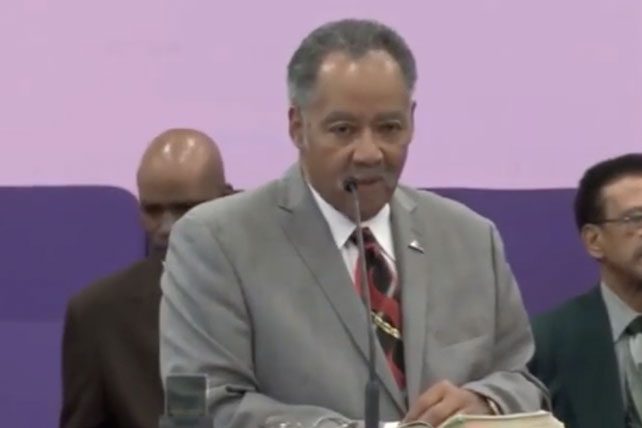It seems somewhat reasonable for people to experience fear during a time of crisis. But Beth Moore observes that many of us deal with persistent, consuming anxiety in our daily lives. And if, instead of overcoming anxiety, we go around constantly worried about our ability to cope, we are not living in the freedom Jesus died to give us.
“If you are in Christ and you keep telling yourself all the time that you cannot cope, you are reconfirming over and over again a complete lie,” said Moore in a talk posted to her YouTube channel. Speaking to a group of women, she said that the truth is, “You have been made mighty in Christ. You have no idea what that woman in you is capable of living out in victory and in glory to the one and only Son of God.”
Succumbing to vs. Overcoming Anxiety
“In your day-to-day existence and in my day-to-day existence, we have no bigger battle than our battle with anxiety,” said Moore. The Bible teacher opened with Merriam Webster’s definition of “anxiety,” which describes it as a “painful or apprehensive uneasiness of mind usually over an impending or anticipated ill.” The definition also says anxiety is connected to “self-doubt about one’s capacity to cope with it.”
Anxiety never stops telling us, “I can’t cope with this,” said Moore. In fact, when we are feeling anxious, we are telling ourselves over and over again that we cannot handle whatever situation we are worried about. She asked, “Do you realize how often we confirm and re-confirm in our souls that we cannot cope?”
But as followers of Jesus, how can this mindset be something that characterizes us? Moore referenced the hope the Apostle Paul expresses in 2 Corinthians 1:8-10, when he says,
We do not want you to be uninformed, brothers and sisters, about the troubles we experienced in the province of Asia. We were under great pressure, far beyond our ability to endure, so that we despaired of life itself. Indeed, we felt we had received the sentence of death. But this happened that we might not rely on ourselves but on God, who raises the dead. He has delivered us from such a deadly peril, and he will deliver us again. On him we have set our hope that he will continue to deliver us.
Moore also alluded to 2 Corinthians 12, which says that God’s power is made perfect in weakness. “Here’s what we’re doing,” she said. “We’re acting like those are such sweet, sweet theories. And we just keep talking about them and keep quoting them, while we live a life that we cannot cope with.” When we do that, “We are preaching something we are not living.”
It’s helpful to note that anxiety manifests itself in different ways. In fact, the words “anxiety” and “anger” share a common root. “That is fascinating,” said Moore. “Can you see where there is some anger wrapped up in some of your anxiety?” One example of what this could look like is a woman who is anxious about not being able to pay her bills might express her worry as anger toward her unemployed husband. Anxiety can also manifest itself as irritability. “I experience extreme irritability when my husband is driving,” said Moore, adding, “He also experiences extreme irritability when I am driving.”
Moore then offered her own definition of “anxiety” as “care clothed in fear and intensified by anger and clamoring for control.” Anxiety, she said, is “all about control”—and recognizing that truth is key to overcoming anxiety.
Overcoming Anxiety by the Power of the Spirit
1 Peter 5:6-7 says, “Humble yourselves, therefore, under God’s mighty hand, that he may lift you up in due time. Cast all your anxiety on him because he cares for you.”
“Anxiety has a robust remedy,” said Moore. “Cast that thing.” Any situation that causes us to be anxious “needs to be a hot potato in our hand.” The second we think about it, we need to throw it at the Lord. One commentator on the 1 Peter passage explains that the commands to humble ourselves and to cast our worries are connected; casting our anxiety on God is how we show humility toward him. Said Moore, “The act of humility is in the casting because the pride is in the keeping….All of that desire for control is nothing but pride.”



















